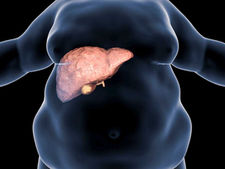
Rheumatic Diseases
Rheumatic diseases are one of the diseases we frequently encounter when our patients apply to us due to their pain in our hospital's internal medicine clinic.
What are Rheumatic Diseases?
The most common rheumatic disease seen in society is arthritis. Athritis is divided into three according to its type: Osteoarthritis, rheumatoid arthritis and spondyloarthritis. Other rheumatic diseases are connective tissue diseases and gout. These diseases greatly affect a person's life functions. Osteoarthritis is the deterioration of the bone tissues under the cartilage.
It is popularly known as "calcification". Pain, tenderness and noise may occur in the calcified joint. It may progress slowly at first and lead to movement limitation and stiffness in later stages. It can cause cartilage deterioration and bone remodeling. Additionally, symptoms of joint stiffness, joint deformity or enlargement, and swelling may occur. Rheumatoid arthritis, popularly known as inflammatory joint rheumatism, is an autoimmune disease seen in adults. It is more common in women than in men. It disrupts the individual's routines and is an irreversible disease if left untreated. Symptoms may include fatigue, morning stiffness, pain in the joints, swelling and limitation of movement. Spondyloarthritis may not disrupt the patient's posture and therefore can be confused with more common herniated discs or other types of spinal cord problems, so this disease can progress insidiously. Spondyloarthritis can also negatively affect other systems of the body and the patient may experience loss of function. Dermatological problems such as eye redness and psoriasis, and hard and red skin may also be among the negative effects of this disease. Pain in the lower back, especially in the morning, limitation of movement, fever, fatigue and weight loss are symptoms of the disease. Fibromyalgia, also known as soft tissue disease, can reduce an individual's quality of life and even their commitment to life, because they wake up tired and have difficulty waking up every morning. Childhood traumas and stress are common causes of this disease. It is more common in women and perfectionist people. Fibromyalgia causes depression, memory and concentration problems. Difficulty in breathing, tinnitus, occasional constipation, pain, sensitivity and fatigue are among the symptoms of the disease. Behçet's disease is a life-threatening disease that causes ulcers in the mouth and genital area, eye infection, skin problems, and sometimes vascular and brain involvement. Gout is both a metabolic and rheumatic disease and occurs with the accumulation of uric acid in the tissues as a result of increased uric acid production in the body. Swelling in the joints, pain that increases at night, and kidney involvement and stones can be seen in individuals as symptoms of gout disease.
What are the treatments for rheumatic diseases?
Osteoarthritis treatment, whose diagnosis is based on clinical and radiological findings, aims to make the person's life easier. This can be achieved through weight loss and exercise. Pain-relieving methods include hot or cold applications, medications, and in more advanced cases, joint injections and surgical procedures. Rheumatoid Arthritis treatment is aimed at reducing pain and regulating the life functions of the individual, just like osteroidatritis. Non-cortisone analgesics, anti-infectants and modifying drugs are used as treatment. Spondyloarthritis treatments include gels and creams for dermatological problems, biological and antirheumatic drugs, injections into joints, anti-inflammatory drugs and, in advanced cases, surgical interventions. Since it is a disease that affects all life and activities, fibromyalgia treatment aims to control pain and improve the individual's quality of life. Exercise is also recommended for this disease, and physical therapy, spas, massage, and a healthy diet can be therapeutic. Although there are natural and herbal treatment methods, painkillers and antidepressants are used. The help of a therapist can be sought to prevent stress from triggering the disease. Due to the discomfort it causes, Behçet's disease may require a cooperative treatment method with other units such as gynecology, urology, and dermatology.
It aims to prevent organ damage. Colchicine, azathioprine, cyclosporine, cyclophosphamide and various biological drugs are used. Since gout is caused by uric acid, the first treatment should be to reduce foods that trigger uric acid, such as alcohol, coffee, red meat and some legumes. Our internal medicine specialist will help you by diagnosing your disease with accurate diagnostic methods, determining the most appropriate treatment method for your disease, and by consulting with specialists from our other units when necessary.
FOR INFORMATION AND APPOINTMENT, YOU CAN LEAVE YOUR NUMBER OR ASK OUR EXPERTS
YOU CAN LEAVE YOUR NUMBER FOR INFORMATION AND APPOINTMENT AND ASK QUESTIONS TO OUR EXPERTS



-04.png)
-06.png)
-05.png)
-08.png)
-07.png)























